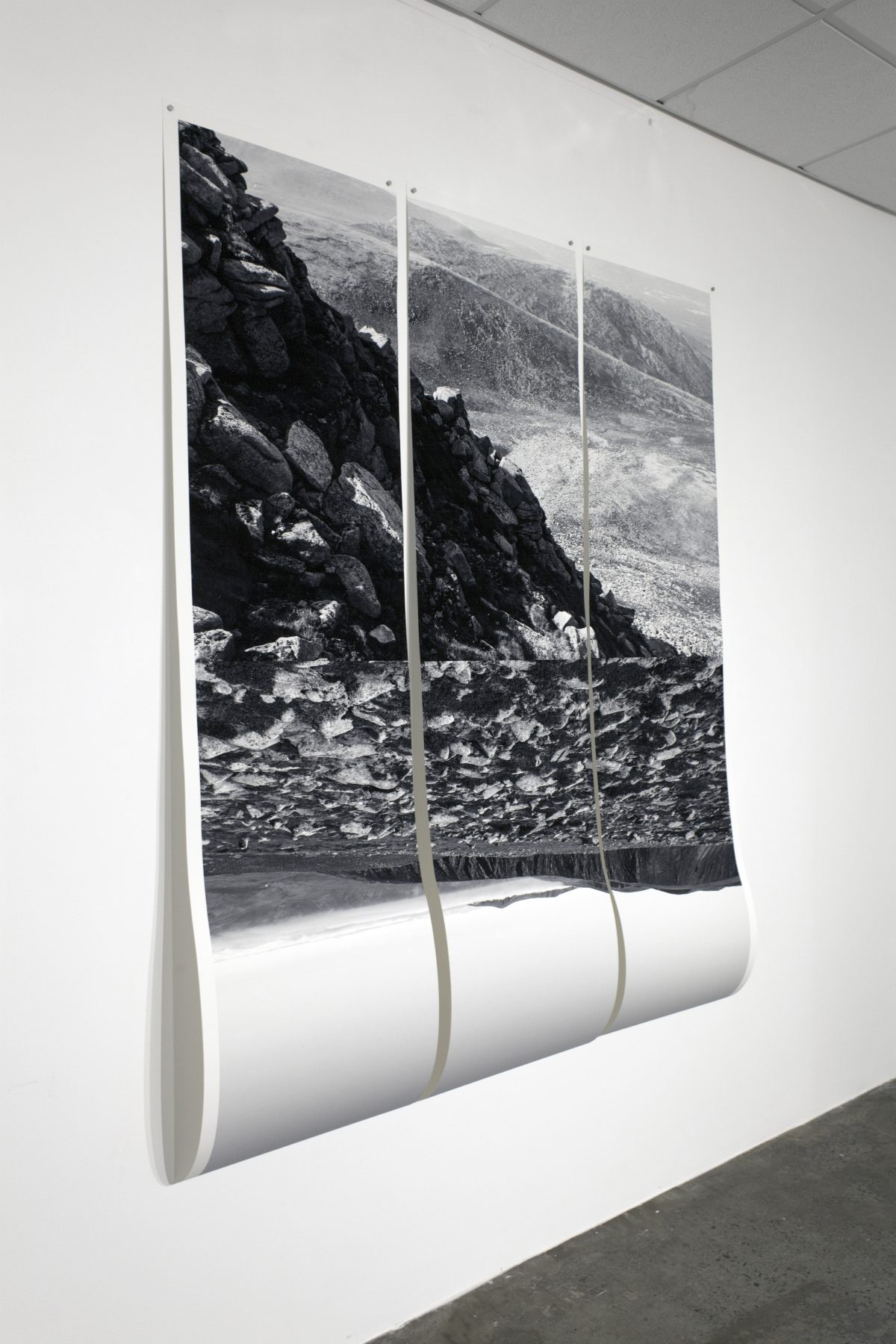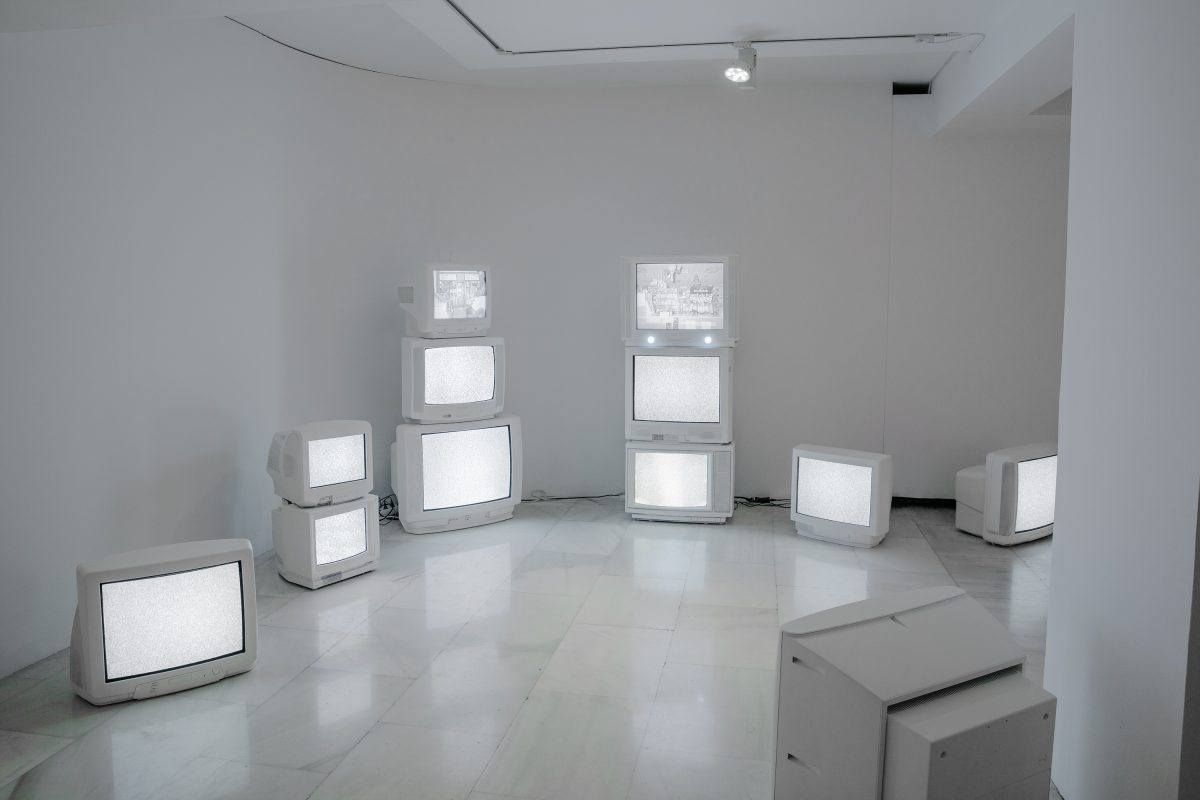All the artists taking part in the Digital Residency are invited to answer a couple of questions proposed by the artist who took part in the residency before them.
Ignacio Navas and Tamsin Green:
IN: What could artists do to create an international support network between photographers?
TG: Start reaching out and making connections… Often networks are most meaningful when they have a core focus that connects these particular practitioners together to create real connections. Is the network about knowledge exchange, collaboration, mentoring, a particular genre of photography or printmaking? and in this context what could be the benefit of global connectivity?
I have been a part of both local and international networks focused on peer mentoring and specific topics such as photobooks. These networks have supported me in the making of work, as well as subject specific knowledge exchanges. More recently, I run a network called ‘The Sustainable Photobook Publishing (SPP) network’, which supports photographers and publishers in developing environmentally conscious approaches to books. This began as a local network, connecting and supporting practitioners here in London, but has since grown into a global network.
IN: Are there any independent [artistic] spaces in your city? Would you like to connect with El Local?
TG: There are two independent photography spaces that I would like to shout about. The first is Photofusion, a gallery, darkroom, print studio and educational space, originally founded by a group of artists as the Photo Co-Op. They support practitioners at all stages of their practice, and this is where I first found a supportive community in photography. The second is the Photobookcafe, a cafe, photobook library and gallery space that runs a comprehensive programme of workshops, talks and book launches. This space has had a big impact on the photobook community here in London, both connecting local practitioners and hosting international artists and publishers.
I would love to connect with El Local.
IN: The digital space is left to conquer. Should we create an online festival that connects with physical spaces?
TG: I think that there is a power in smaller organisations working, and networking together. An online festival that creates global connectivity between small physical festivals and spaces could be a great way of enhancing visibility and opportunities for exchanging ideas and knowledge across borders.

Elijah Ndoumbe and Ignacio Navas:
EN: What motivates you in your practice?
IN: I have a background in documentary photography, and what interests me are everyday stories: the small adventures of two teenagers in love, the exhaustion of a father or mother who goes to work every day, the envy of one neighbor towards another for having a bigger car, the exaggerations and mythology of a village bar, the pettiness of a shop trying to earn a few extra euros, or the story of a business transfer. I believe that this everyday life is the place from which a photographer like me can develop his work. It is what I know, where I belong, and it has become the raw material for my projects. In these small stories, we can scrutinize the nuances that are usually left out of the grand official narrative, but which, in turn, show the seams and fringes of our society. After several years working from this straight documentary approach, I realized that I am interested in delving deeper into how social, political, and economic structures manifest and shape us in our daily lives. Structures like the idea of success acquired through the imagery created by advertisements, the inherent tensions within a group of friends, or inherited family values. This is the place from which I create my projects; it is a way of continually trying to understand and review the world we live in.
EN: How do you rest?
IN: Usually, I like to spend time with Patri, my girlfriend, I love going to a bar to just talk and have a glass of wine, or traveling to any place. With her, any moment and place becomes amazing. I also like to research music, especially Hip-Hop. Did you know that Hip-Hop’s creative processes are very similar to those in photography? Think about it: photography can be understood as a visual editing system, and when hip-hop producers are looking for samples, they are engaging in a similar kind of editing process, and much more! I love listening to interviews and learning about albums and music processes. I have a vinyl collection about music that is not digitized, especially protest songs from the 60s and 70s, early hip-hop, and some rock. Discovering those albums and learning about them is one of my biggest passions.
EN: Who is a contemporary photographer whose work you admire?
IN: There are many people I could mention, but I want to highlight one person: Fosi Vegue. Fosi created the Blank Paper School, a photography school that operated between 2006 and 2017. He is the kind of person who prefers to maintain a low profile, but I think Fosi deserves more recognition. The school, along with the Blank Paper collective, changed the way photography was approached in Spain. Fosi taught us many values, not only about photography or working with images. To be honest, I believe that much of what is happening in contemporary photography in the Spanish context right now is thanks to him.


